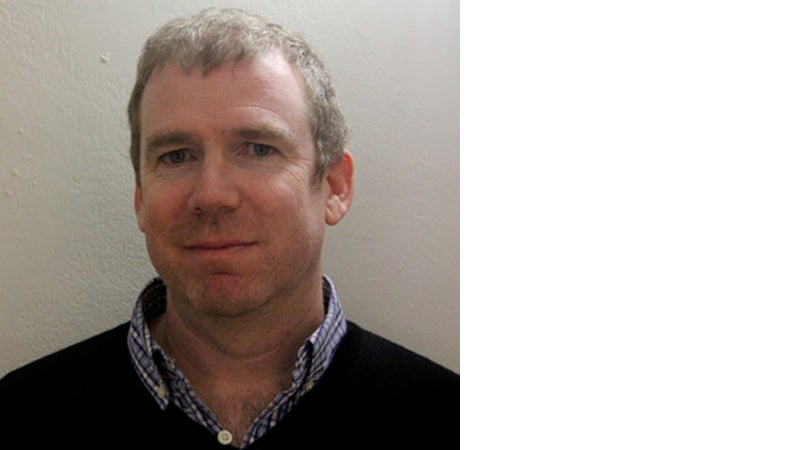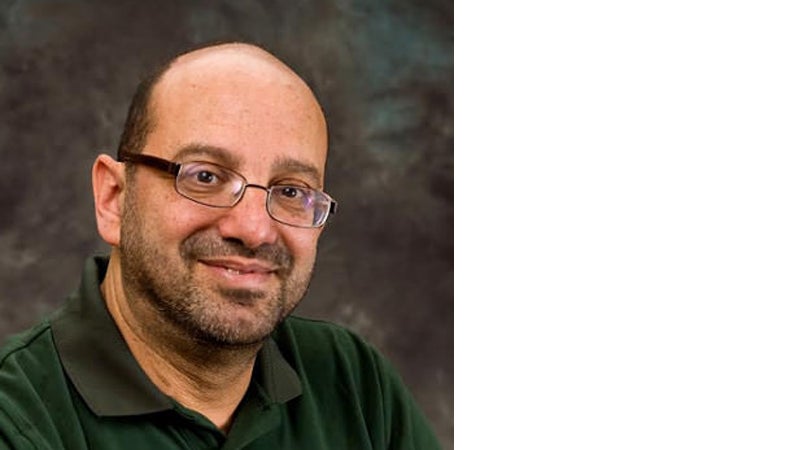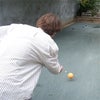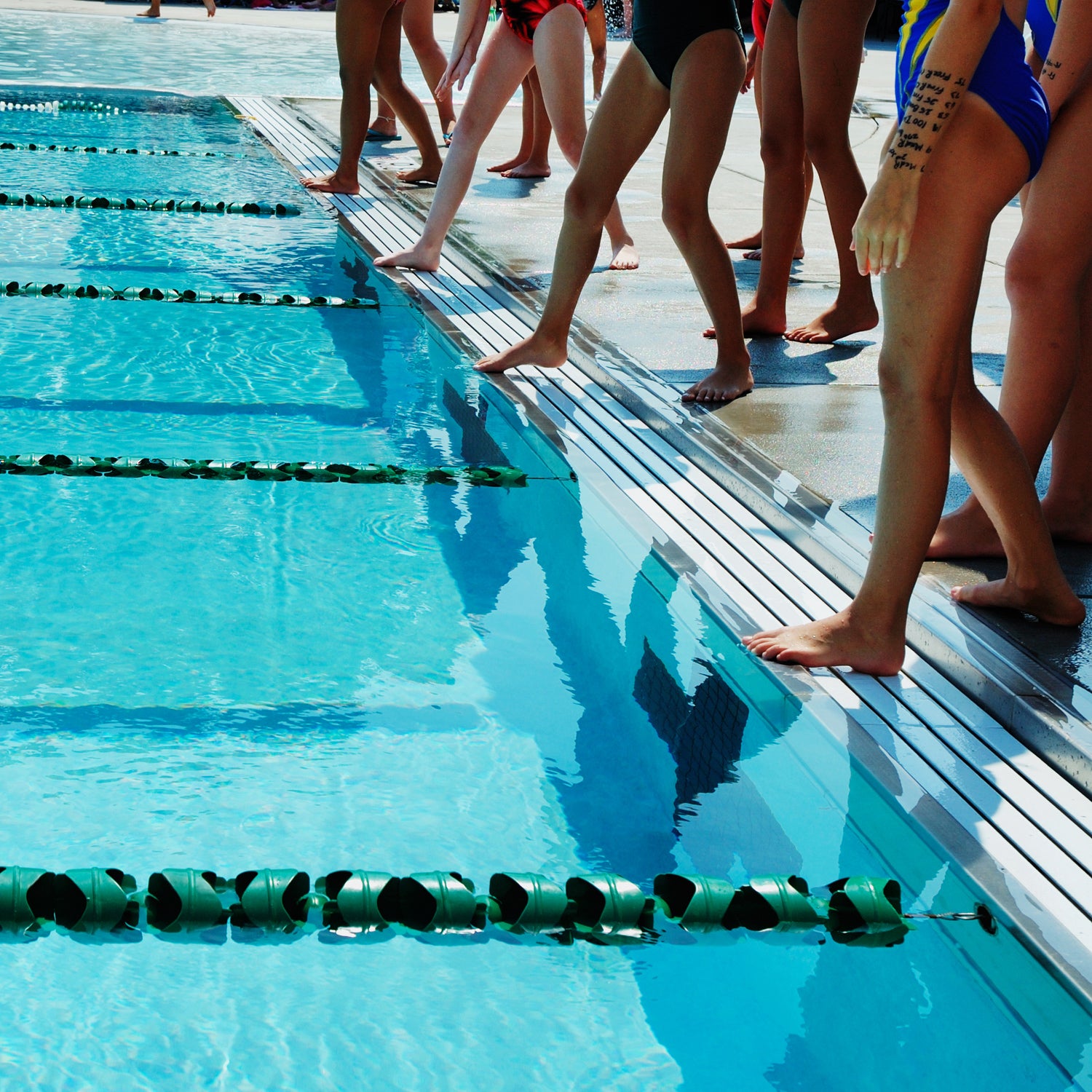If anybody ever sets up a blogger Hall of Fame, Irvin Muchnick and Tim Joyce should be picked for the first class. Over the past three years, Muchnick, 60, and Joyce, 48, have teamed up on Muchnick’s website, , to produce an important investigation into the ongoing problem of sexual abuse committed by coaches in the sport of swimming.
�����ԹϺ���
Rachel Sturtz reports on the sport’s continuing legacy of sexual abuse, and how USA Swimming looks the other way.Between them they’ve written hundreds of posts on this alarming subject, covering everything from individual coaches who have abused athletes to the top leadership at swimming’s governing body, Colorado Springs–based . A favorite target has been the group’s executive director, 64-year-old Chuck Wielgus, a man who they believe should have been fired long ago for not doing enough to protect young athletes. For both journalists, the work has been alternately rewarding, difficult, lonely, and frustrating, as they’ve had to confront both direct intimidation and what they see as blindness among mainstream media outlets about the scope of this scandal.
Muchnick, who lives in Berkeley, California, is a longtime sportswriter whose other main focus in recent years has been brain injuries, the subject of his forthcoming book . His interest in swimming began when he found out that the coach of a Berkeley swim team—one that his oldest daughter had competed for—had raped one of his athletes. Joyce, who lives in New York City, came to the topic from a different path. In 2011, when Joyce was a columnist for Real Clear Sports, he about the Penn State sex-abuse crisis, which led an anonymous victim of sexual abuse by a swim coach to contact him, suggesting that he take a close look at USA Swimming. He’s been working the beat ever since.
In a conversation with �����ԹϺ��� editorial director , Muchnick and Joyce talked about their experiences covering one of the darkest stories in American sports.
OUTSIDE: Tim, you found out fast that covering this story can have consequences. Tell us about it.
JOYCE: In the summer of 2012, I started writing articles about USA Swimming for the website of WBAL, a major Baltimore broadcasting company that owns a television station and two radio stations. I was interviewed about a dozen times for WBAL-AM. But then I started —which is Michael Phelps’s home club. In a bizarre Orwellian act, the station removed all the articles and interviews I’d done from its website, even though it had fact-checked the piece I wrote about the NBAC. I couldn’t find a media site that was interested in this at all, so in 2012 I decided to partner with Irv on his relentless and vigilant pursuit of the story.

Irv, tell us about the coach of your daughter’s old team. What happened there?
MUCHNICK: My eldest daughter was an excellent—not elite or Olympic-class—club swimmer. Watching her become the jock of our family was a magical time in my life. I loved getting up with her at 5 A.M. on a Saturday in Berkeley to drive to a meet anywhere from Santa Rosa to San Jose.
Around 2008, our team, which was coached by a man named Jesse Stovall, collapsed organizationally, and we went elsewhere. There was also the mysterious departure of the team’s star swimmer, who stomped off after an on-deck argument. A year later, I learned through an e-mail network that Stovall had been arrested on a fugitive warrant from Florida, where he had “chaperoned” the swimmer, a 16-year-old girl, to a national meet and twice raped her. Stovall pleaded down the charges on the eve of his trial, got probation, and was later banned by USA Swimming.

With little support from other parents, I became the main source for a cover story about Stovall in my local alternative weekly, the East Bay Express. I thought that was the end of it, but a couple of weeks after that, in the spring of 2010, 20/20 aired its investigation of the sexual-abuse culture of swimming, focusing largely on Andy King and Brian Hindson. I realized that I had stumbled onto my local precinct’s rendition of a national problem.
Two years later, in the spring of 2012, I started talking with attorneys Robert Allard in San Jose and Jonathan Little in Indianapolis, just to follow up. I learned what any journalist worth his salt could see: that the , initiated by USA Swimming after 20/20, was all PR bullshit. Abuse continued, but there was now a “director of Safe Sport”—which, really, was just a staff point person who gave the same old message to victims: that they had to go to the police and expose themselves to National Board of Review hearings before anything could happen. The person who holds this job, Susan Woessner, serves as a good face for generalized educational efforts, such as attendance at anti-abuse academic conferences, but USA Swimming still makes all the familiar excuses for inaction: this case happened a long time ago; that case involved someone who is not a member anymore, so we have no jurisdiction; and so on.
But back to Tim. In the summer of 2012, I invited him to work with me. Two heads are better than one, and this story is too big for any single freelance reporter.
When I talk to people about this problem—whether I bring up your stories for Concussion Inc. or Rachel Sturtz’s for �����ԹϺ���—I consistently get two responses. “Why haven’t I heard about this already?” Followed by: “How much of this kind of abuse goes on?” Because it doesn’t only happen in swimming, as you guys and Sturtz have made clear in your reporting.
MUCHNICK: The short answer to your second question is that it happens a hell of a lot more than most people think, but it’s not measurable. I’m not big on quantifying this stuff, because that takes us into the realm of “experts,” and I can’t stand the way the expert class takes up all the oxygen in these discussions. If you do some simple math—there are 341,000 year-round youth-club swimmers and 17,000 coaches—look at the reported cases and the unjust outcomes, factor in the institutional cover-up and human-denial quotient, and extrapolate even conservatively, I think it’s clear that the problem in swimming, and probably in many other Olympic sports, makes Penn State look like a tea party. It’s much closer in scale to the global problem of sexual predators in the Catholic Church.
JOYCE: The answer to your question about awareness is twofold. There’s an acute sense of what I call abuse fatigue—after the Catholic Church, Penn State, and scandals, for example—and, unfortunately, no matter how shocking and repulsive the stories are that we hear from victims in swimming, a numbing effect takes place. I also think the swimming scandal has not generated consistent headlines because swimming is a sport you usually hear about only once every four years, during the Summer Olympics. And it lacks a media-ready narrative—unlike Penn State, which featured a famous coach, who prided himself on ethics, and an easy-to-despise villain.
In addition—and this is a disturbing and difficult thing to talk about—Penn State and the church scandals involved man-on-boy abuse. There’s something about man-on-girl abuse that, in our society, is somehow seen as acceptable, or at least expected on some level.
A lot of the coverage of sexual abuse in swimming, for obvious reasons, plays out through breaking news about notorious individual abusers like Andy King, Richard Curl, and Brian Hindson. What are some cases that you’ve done a lot of reporting on?
MUCHNICK: Two of the biggest stories we’ve worked on together involve Greg Winslow and Alex Pussieldi.
In February of 2013, Tim and I were simultaneously tipped that an Arizona State University police report was about to recommend prosecution of Winslow—a former club coach on a campus-based team there who by then was the head swimming coach at the University of Utah—for allegedly molesting a teenage swimmer, Whitney Lopus. In 2008, Lopus had followed Winslow to Utah for a year. Then she returned to Arizona and descended into substance abuse and a suicide attempt before accusing him of molesting her on numerous occasions, most notably in his office on campus, starting when she was 15.
When we relayed this information to the University of Utah, Winslow was suspended and soon fired. Our first-day story on this development was, I believe, the only time that major news organizations, such as the Associated Press and The New York Times, ever .
[quote]I think it’s clear that the problem in swimming, and probably in many other Olympic sports, makes Penn State look like a tea party.[/quote]
As a national narrative, the Winslow story mostly focused on Utah’s cover-up of complaints about his alcohol abuse and physically and emotionally cruel behavior. The Phoenix NBC affiliate on the Lopus case, the ultimate decision by the prosecutor not to press charges, and the family’s settlement in a civil lawsuit against Winslow, Arizona Swimming (the regional affiliate of USA Swimming), Sun Devil Aquatics (the club at ASU), Mike Chasson (the owner of the club), and Jill Chasson (his wife and, at the time, chair of swimming’s National Board of Review).
Tell us about Pussieldi.
MUCHNICK: In January of this year, Tim and I were poring over thousands of pages of discovery in civil lawsuits by swimming-abuse victims, and we came across the most heavily redacted set of pages we’d ever seen. One night, during a phone conference, Tim said we had to try and figure out the identity of a coach who was referred to only by his initials: “A.P.”
Once we figured out the name, became the for a while. A Brazilian native, he coached in Fort Lauderdale for ten years after being credibly accused of having maintained a secret videotaping system inside his home. Pussieldi, who has never been charged with a crime, is now back in Brazil, where he’s a prominent television commentator on swimming.
In Sturtz’s story, she writes about the intimidating tactics that attorney Jonathan Little faced when he went to court against USA Swimming. Have you encountered anything like that?
JOYCE: The bullying tactics are both obvious and subtle. The obvious includes PR representatives for USA Swimming contacting media outlets where I wrote about the story, in an attempt to discredit my reporting. During the WBAL fiasco, Jamie Olsen, the former communications person for USA Swimming, e-mailed the news director, stating that my work was full of “inflammatory and blatantly false information,” though she never did say which part was false.
The threat of lawsuits looms very large over nearly every mainstream media outlet. Time and again, Irv and I have pitched swimming stories to big news organizations. And while they express interest at first, and even ask for drafts of a long article, they balk at the last minute—due, we believe, to corporate pressure or fear of legal reprisal.
MUCHNICK: My favorite anecdote comes from the 2012 Olympic Trials in Omaha. I had bought my own ticket, because USA Swimming refused to give me media credentials. A Washington, D.C., area coach named Noah Rucker had just been brought up on criminal sexual-abuse charges, stemming from acts he had allegedly engaged in several years earlier with a high school swimmer he was coaching, and USA Swimming had scheduled a hearing to consider his status. Inside the CenturyLink Center in Omaha, I walked up to USA Swimming’s PR person at the poolside, introduced myself, and asked, “What is the update on the Noah Rucker hearing?” I was told, “We’re here for a competition, not to talk about that. If you don’t leave this area, I’ll call security and have you ejected.”
Where is Rucker now?
MUCHNICK: In 2013, he was jailed in Virginia for six months, for contributing to the delinquency of a minor, and then he was banned by USA Swimming. I don’t know his current whereabouts. His former boss, Rick Curl, is now in a Maryland prison for the serial molestation of a teenage swimmer he coached, Kelley Davies.
You guys make it abundantly clear on the website that you think Chuck Wielgus should go. Why is he so high on your list?
MUCHNICK: As I’ve written, Wielgus has —regarding what he knew and when he knew it—that simply does not appear to be credible. In 2010, during a deposition in the civil lawsuit against Indiana coach Brian Hindson—who had secretly videotaped young female athletes inside locker rooms—Wielgus said that the issue of Peeping Tom videos made by coaches was “not even on the radar” at USA Swimming prior to 2008.
But back in 2005, the FBI had alerted USA Swimming and its aquatic centers about Pennsylvania coach , who was on the FBI’s Most Wanted list and featured in the TV program America’s Most Wanted. Trites was fleeing charges of having done the exact same thing Hindson would later be accused of: videotaping female swimmers as they changed in a locker room. And in the Pussieldi case, we came across extensive 2004 allegations—found in reports generated by a USA Swimming investigator and by Fort Lauderdale police—that Pussieldi had peeped at young male swimmers through a hidden camera.
[quote]America’s millions of sports parents own a piece of this problem, too. If they wake up to the dark side of youth athletic programs—instead of simply hoping that the worst doesn’t happen to their own kids—then there’s an opportunity for an overdue overhaul.[/quote]
JOYCE: Another example relates to former USA Swimming National Coach , who now is on USA Swimming’s list of banned coaches. In January of 2006, after allegations of sexual abuse were brought against Uchiyama, involving a girl from California, he quietly left USA Swimming, under the terms of an agreement, signed by Wielgus, stating that USA Swimming would not conduct any further investigation into his actions.
Then, shortly after being banned, Uchiyama—incredibly—was hired by the Country Club of Colorado, just down the road from USA Swimming headquarters in Colorado Springs, where he became the aquatics director. On his job application, Uchiyama received a glowing reference from Pat Hogan, an executive at USA Swimming, who declared that Uchiyama was a “great people person.”
In the ensuing years, USA Swimming held several board meetings at the Country Club of Colorado. It’s an insult to anyone of intelligence to suggest that all the higher-ups at USA Swimming, especially Wielgus, didn’t know that Uchiyama was once again around minors on a swim deck after being banned.
As you’re both aware, California congressman George Miller has to investigate the sexual-abuse culture in youth sports, and officials are taking a hard look at USA Swimming. Some congressional investigations end up being important, some don’t amount to much. What are your hopes for this one?
JOYCE: The Republican majority in the House has shown zero interest in moving this issue forward. As has been reported previously, Miller has requested that Representative Jon Kline—who chairs the House Committee on Education and the Workforce—hold hearings on the matter, and Kline hasn’t budged.
Miller, who is retiring, has a long and distinguished history as an activist, progressive legislator who has protected children’s interests, and there’s no question that his absence will be felt with this issue. We’ve already seen publicly stated interest and support of Miller’s efforts from House members in districts where abusive swim coaches have worked, including California congressman Mike Honda and Oregon congresswoman Suzanne Bonamici. Congressional members from such districts and states are natural fits to pick up where Miller leaves off.
Greater pressure should also be exerted in the Senate, especially on women senators—for example, Senator Kirsten Gillibrand of New York, who has shown great leadership about issues of sexual abuse in the military—to call for hearings. I see the Senate as more of a hope, however slim, because the House, being so overwhelmingly Republican, likely won’t accomplish much.
That sounds fairly bleak.
JOYCE: Yes, but I believe that if the FBI deeply investigates USA Swimming—as Miller has formally asked them to do—and if the GAO report is hard-hitting, there may be enough momentum to force this issue into a wider public realm. There has to be consistent pressure, relating to the fact that the United States Olympic Committee was formed by an act of Congress, and it is imperative that any oversight of the USOC and its governing bodies, such as USA Swimming, remain with Congress. But the USOC has a very high-profile lobbying presence, and that will surely be an impediment to progress on the Hill.
MUCHNICK: Anyone who thinks USA Swimming corruption is going to get cleaned up just because a couple of independent journalists have latched onto it, and �����ԹϺ��� and Rachel Sturtz have exposed the organization’s insurance operations and Safe Sport hype, needs a reality check. As for what Congressman Miller’s intentions are, you would have to ask him. He has been holding his cards very close.
The Republican sweep in the midterm elections was not good news for quick action. But bear in mind that, for my money, the Democrats, from President Obama on down, haven’t shown any real will to rein in the excesses of our sports system, either.
The political paradigm I prefer is not partisan. Instead, the model is the effort that shaped up starting in 2013 to stop sexual assaults in our newly gender-integrated military. That has been an initiative driven by a new class of women legislators in both parties. I believe the new Congress will have at least 102 women: 83 in the House, 20 in the Senate. Liberal or conservative, carnivore or vegan, they as a group will be far likelier than the membership at large to have confronted the issue of abuse, and to be determined to do something constructive about it.
The sleeping-giant constituency in all this is America’s millions of sports parents. They own a piece of this problem, too. If they wake up to the dark side of youth athletic programs—instead of simply hoping that the worst doesn’t happen to their own kids—then there’s an opportunity for an overdue overhaul of the .
If not, we face at least four more years of what I call “Safe Sport reboot.” What the USOC is now saying is that swimming has done a great job—which isn’t true—but that the Safe Sport task for all the national sports governing bodies must be taken over by a new and privately funded “independent” agency. The model is the U.S. Anti-Doping Agency. Tim and I feel that this agency will serve as an ineffective “sex police,” with an agenda that is still friendlier to the NGBs than to young athletes. This is like rearranging the chairs on the deck of the Titanic, and it’s no substitute for real federal oversight.


